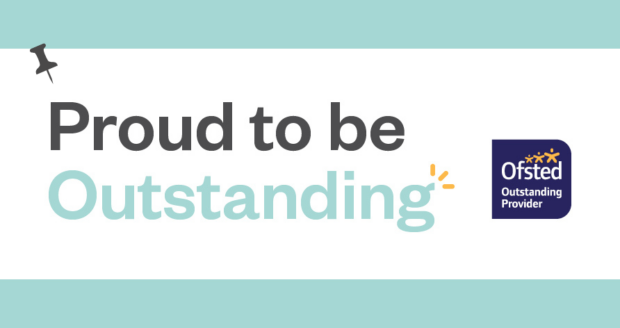In 2015, the North East Local Enterprise Partnership began the two-year Good Career Guidance Benchmark Pilot in partnership with the Gatsby Foundation and 16 secondary schools and colleges from across the region.
The success of the pilot in the North East LEP area led to government launching new statutory guidance for schools on how to deliver careers education, with the Gatsby Career Benchmarks at its very heart.
The North East LEP spoke to Vikkie Morton, Vice Principal Students Services & Registry, about the transformational impact the Benchmarks pilot has had – and continues to have – on the delivery of careers guidance at Sunderland College.
To find out more about the Good Career Guidance Benchmarks, visit www.northeastambition.co.uk.
I joined Sunderland College after the pilot had begun, and at that time our specialist careers team had a dual role. That meant they were spending about 70% of their time in our local partner schools. Opportunities to access to careers guidance for future students were very positive, but for our existing students they were more limited.
From a curriculum point of view, I think the offer at that time was very traditional through the tutorial offer. It certainly wasn’t consistent and it wasn’t available to each and every student.
It did, but it wasn’t until we employed an Executive Director for Partnerships and Engagement that the college developed a detailed employer engagement strategy that ran alongside the Benchmarks pilot.
We started to look at new facilities for our curriculum around advanced manufacturing, and through the Enterprise Adviser programme we were able to work strategically with a local employer who was able to connect us with other businesses in the sector. Being part of the pilot facilitated some of that for us.
A new CEO joined Sunderland College in January 2016 and the college’s involvement in the pilot help shape the senior team based on a distributed leadership model with one role having strategic responsibility for careers.
What we’ve done is transform what our careers infrastructure looks like. We brought the Careers Team back in house and we have a separate team that looks after schools engagement. Our current students now get the benefit of increased access to 1:1 guidance as well as group activity in the classroom and online.
The pilot has definitely changed how we deliver careers education with the focus being on each and every student. It allowed staff to innovate and do something different.
We never talked about the changes as just being part of the Gatsby pilot, it was always about delivering good careers guidance. The principles were there, and it was about how we ensured it had longevity. If the pilot didn’t affect change with national policy – we were still doing the best we could. Careers is now the golden thread that weaves throughout our student journey.
I could give lots of examples of how being part of the pilot allowed our staff to create meaningful engagements with employers and workplaces.
An example would be our focused engagement with the automotive sector – Nissan is one of the biggest employers in our city – and we began working with one of the sector’s feeder employers who carried out free health and safety reviews in the college. They then worked directly with our students around understanding the importance of health and safety standards in their workplace.
Our students then used that knowledge to improve health and safety in their learning environment. That model was then rolled out to different areas of the college – hair and beauty, construction etc. That employer engagement was integral to making that change.
Our students also took park in a living classroom experience; transforming a derelict building in the city centre into a multi-purpose culture hub. Students were able to gain experience working on a busy commercial site whilst helping to regenerate an area at the heart of the local community.
Careers was integral to our new strategic plan 2019-2023. One of our strategic goals is shaping and evolving a well-designed careers focused curriculum. Our curriculum is anchored to the regional priorities. We use labour market information, employer feedback through industry panels to shape the curriculum. Careers education is driving how our broad and balanced curriculum looks. We want it to open rather than close doors to future success, progression and positive destinations for our students at all levels.
The legacy of being part of the pilot is clear to see in annual reporting to Governors on Careers and Employability, which shows with five-year positive trends for destination data, stakeholder feedback, work readiness and work experience completion.
Those that are coming into the college now from schools that took part in the Gatsby pilot – Castle View Enterprise Academy for example – are much more aware, whereas those from schools not involved with the Careers Hubs, less so.
I would say more students are aware of the opportunities available to them and what the next steps are. And that includes the need for higher technical level skills, which means you don’t have to have to do a degree.
We’re preparing students to be the employees of the future. Here at Sunderland College we offer vocational, technical , A-Level and apprenticeship provision up to Level 6 and careers guidance is critical in terms of student success, and it’s crucial for improved social mobility.
64% of our students come from socio-economic disadvantaged backgrounds. Some of them come from three generations of worklessness. No matter what their backgrounds and individual needs, our students need access to high quality impartial careers guidance that enables them to make informed choices and improve their outcomes. It is really important that what we do makes a difference for them.
The key indicators for the college are things like attendance. If students are doing things that inspires and they can see how that links to their future, they’re more likely to participate.
It improves their overall achievement too. We’re seeing improvements in destination and progression. As we’ve developed the careers programme it doesn’t just focus on the technical skills they need, it also focuses on the attitudes and behaviours that employers are looking for, which also aligns with the overall values of the college too.
Lots of employers are looking for people with skills in critical thinking, problem solving and adaptability – not just technical skills. Employers tell us they can teach those technical skills, but what they can’t teach are some of those broader social skills that are really important in the workplace.
I think timeliness is key when we’re talking about personal guidance – young people have to be ready to engage with it. It’s not just about doing it because it sits on an annual plan. Timing is key.
We very much focus on those most at risk, particularly those struggling at the beginning of an academic year which could be because they’ve chosen a different path from the one at interview, or those who are not engaging fully with their learning as well as when it’s time to progress. That’s where we currently target the one to one intervention. It’s about timeliness and balance; otherwise students don’t value it.
It didn’t faze us we were able to move very quickly to a virtual offer. Because of the changes we’ve introduced around careers education using the Gatsby benchmarks it was about taking the existing resource and using digital platforms to open it up to our students.
We have really good relationships with employers around work experience and many of those businesses moved to online working during the pandemic. Some of them approached us to ask, if they supported students, could our young people still complete their work experience from home. Because we’d put the processes in place, they were happy to continue with the work experience programme.
There’s been a regional and a national impact because of our role in the pilot. We tend to be one of the institutions people come to for help and guidance, and we’re very happy to share our resources with North East colleges.
One of the most positive things to come out of the pilot – which wasn’t intended – is that it created a fantastic network of colleges that met on a regular basis and could share what was working well, and what wasn’t, and come up with solutions around that.
That wider impact across the North East is that we have ten colleges all happy to share and talk about things, and the use that almost like an incubation hub to develop ideas and do things differently.
That group helped shape the Gatsby benchmarks for colleges national and we’ve shared our learning through national presentations. There are lots of positives.
The experience also helped improve staff confidence in what they were delivering, and a sense of pride. This has resulted in a better experience for students, which is what it’s all about.
North East Ambition has opened up further opportunities for us, like Ford Next Generation Learning. That has been an amazing opportunity to engage internationally and is supporting the College to further transform teaching and learning, and student experience through business and civic engagement with the college.
We’re now looking at how we can use that route map and approach to develop other sectors. So what does that look like in the construction sector, for example? It gives us more of a framework so we have a longer-term view.
That project-based learning approach is something we’re hoping to use as part of our induction process this year to help settle students into their chosen career field. We think it will really hook them in and keep that passion alive.

Sunderland College, as part of college group EPNE, receives an Outstanding rating across the board in its latest Ofsted inspection.
November 26, 2024

Sunderland College held their third Childcare Conference recently, giving students rich experiences to help inform their next steps.
December 2, 2025

Sunderland College and Sunderland Culture worked together in partnership with students to showcase their creative talents at an exhibition.
November 21, 2025

98% of our students progress to a positive destination
(*Destination data for Sunderland College students aged 16-18, academic year 2017/18).

Our achievement rates are well above the national average.

We are the College of the Year.
(*Top college nationally for BTECs, Pearson 2019)

100% of our HND and HNC students progressed to employment or further study.
(*Destination data, academic year 2016/17, HNC 19+)

We have recently invested £50 million in our facilities.